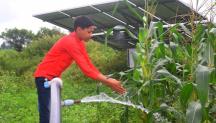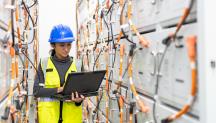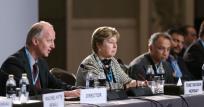
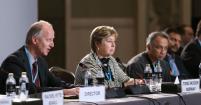
Ministers Gather to Discuss Development with Off-Grid Renewables
Newsletter
Over a billion people in rural and peri-urban areas live without electricity, and another 2.9 billion rely on traditional fuels (like firewood) for cooking and heating. The Sustainable Development Goals recognise that bringing affordable electricity access to these people will enable increased productivity, higher incomes, improved food and water security, enhanced access to healthcare and education, and a host of other benefits towards developing communities and raising people out of poverty.
But what’s the best way to sustainably bring electricity access to people and gain this myriad of benefits in a timely manner? Off-grid renewables offer one approach that fulfils these needs and is both economical and good for the environment.
How off-grid renewables can be best integrated into national electrification strategies and maximise socioeconomic benefits, was the focus of discussion at IRENA’s 7th Assembly’s Ministerial Roundtable, Catalysing off-grid renewable energy deployment – Towards universal electricity access and the attainment of SDGs, held on 15 January 2017 in Abu Dhabi.
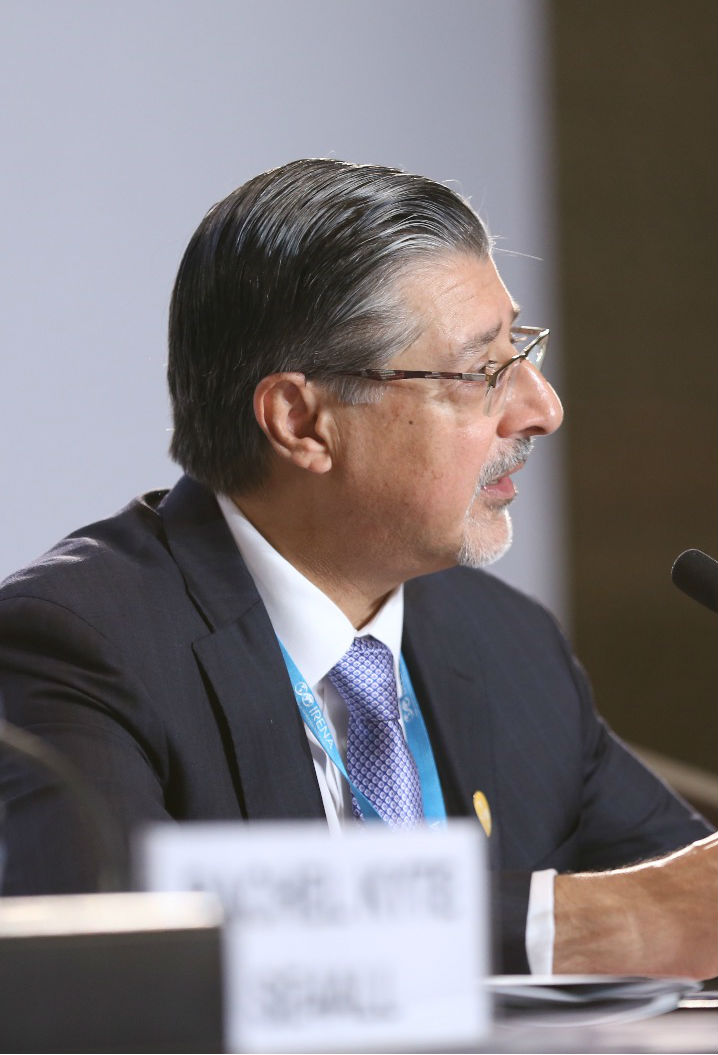
“A few years ago, off-grid renewables were a social charity. Today it’s a business, and entrepreneurs are delivering energy access now.” — Adnan Z. Amin, IRENA Director-General
“Renewable energy provides a unique opportunity to reconcile multiple sustainable development objectives while offering a viable solution for catalysing socio-economic development,” said Adnan Z. Amin, IRENA Director-General, at the opening of the discussion. “Off-grid solutions can empower rural communities to catalyse local economies, increase incomes, escape the poverty trap, and contribute to the development of resilient and sustainable energy infrastructure.”
Convening thought leaders in the sector
The Ministerial Roundtable discussion was complemented by insights from a high-level panel constituting key international (e.g. African Development Bank, Sustainable Energy for All) and private sector (e.g. Mobisol, SELCO, Azuri Technologies) actors. The dynamism of the discussion was remarkable and it was clear that the question is not why but how — how to deploy off-grid solutions faster and at scale.
Several governments recognized the substantial socio-economic benefits on offer and the advantages offered by off-grid solutions in terms of scale, pace and livelihood-impact, and demonstrated the will, targets, and plans to support off-grid renewable energy deployment.
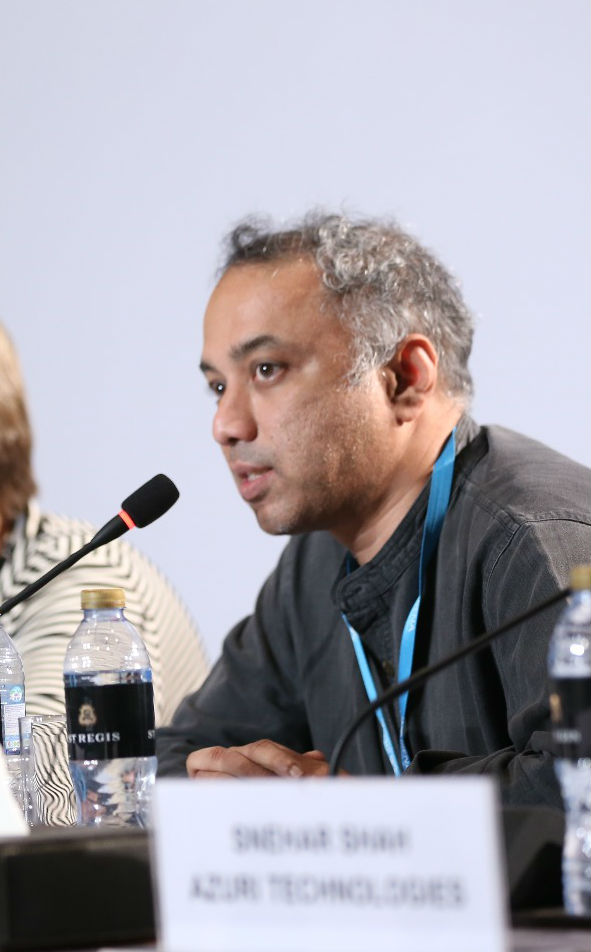
“We need to look at off-grid in the manner that it delivers services, not electricity." — Harish Hande, Co-Founder of SELCO
Speakers said that to accelerate the pace of off-grid renewable energy deployment, planners need to rethink solutions and approaches for electrification, and develop integrated planning processes that consider the viability of grid-based and off-grid solutions — this will promote that adequate electricity access be delivered sustainably and timely. They emphasised that governments need to look at access from a ‘delivery of services’ perspective and not the number of Mega-watts alone, and that focusing on education, health and productive end-uses will enable customisation of energy solutions and maximise socio-economic impacts.
These outcomes from the Ministerial Roundtable echoed those from last September's the 3rd International Off-grid Renewable Energy Conference (IOREC).
Creating an ecosystem to accelerate deployment
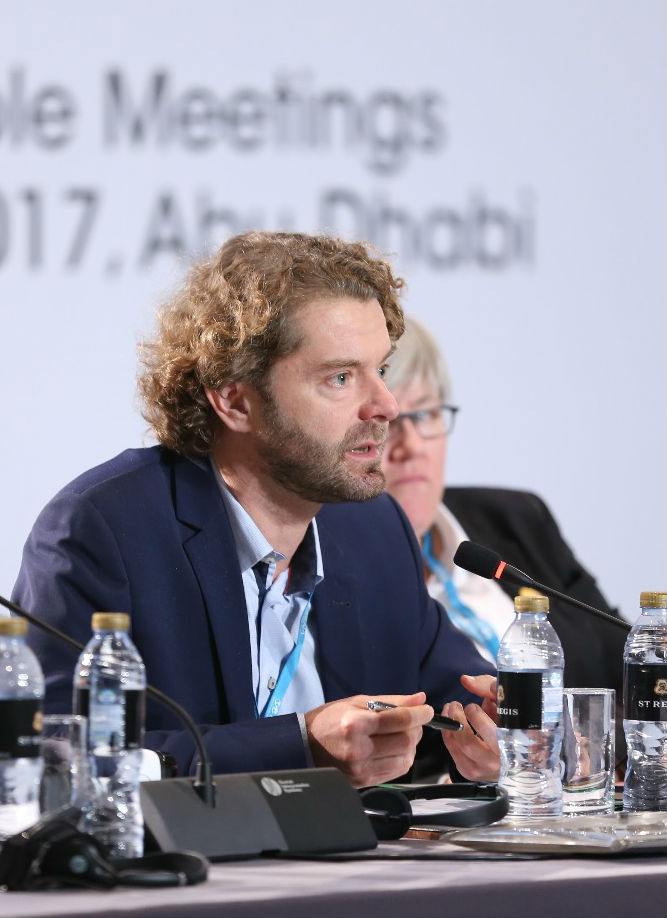
“All the small businesses that I know in sub-Saharan Africa can be powered by solar.” — Thomas Duveau, Mobisol’s Head of Business Development
“Ensuring access to modern energy is critical for achieving sustainable development goals,” said Tone Skogen, Norway’s State Secretary and moderator of the Roundtable. Efforts are needed to accelerate the pace of off-grid renewable energy deployment, and this requires an enabling environment hinged on tailored policy and regulations, customised financing and business models, capacity building, and innovative technology solutions.
As touched upon in the previous day’s Legislator’s Forum, policies and regulations play a central role in promoting off-grid renewable energy development. At IOREC 2016, IRENA released a major report focusing on policy and regulatory design for mini-grid development, along with a report focusing on ongoing and future technology innovations in renewable mini-grids..
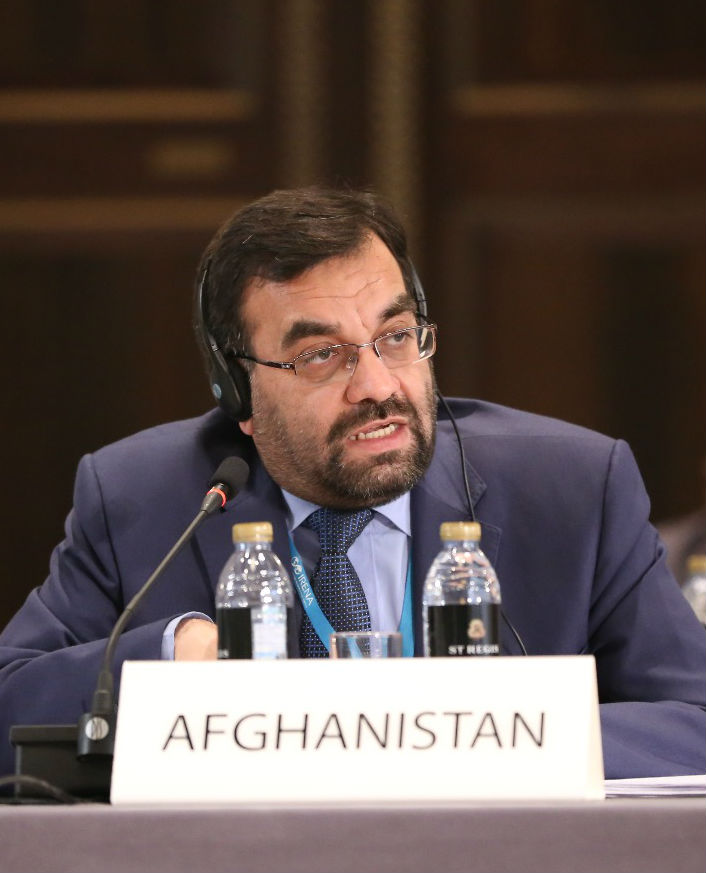
“Least developed countries have two big challenges: energy quantity and quality. Governments need to focus on speeding up accessibility.” — Ali Ahmad Osmani, Afghanistan’s Minister of Energy and Water
The discussion during the Ministerial Roundtable highlighted that besides the generation technology, innovation on the appliance side, including those for productive uses (e.g. welding machines, agro-processing equipment) and public services (e.g. healthcare equipment), have the potential to transform the lives of millions with new economic possibilities and social inclusion. As an example, IRENA’s earlier work demonstrated the wide range of benefits that could be realized from deploying decentralised renewable energy solutions in the agri-food chain.
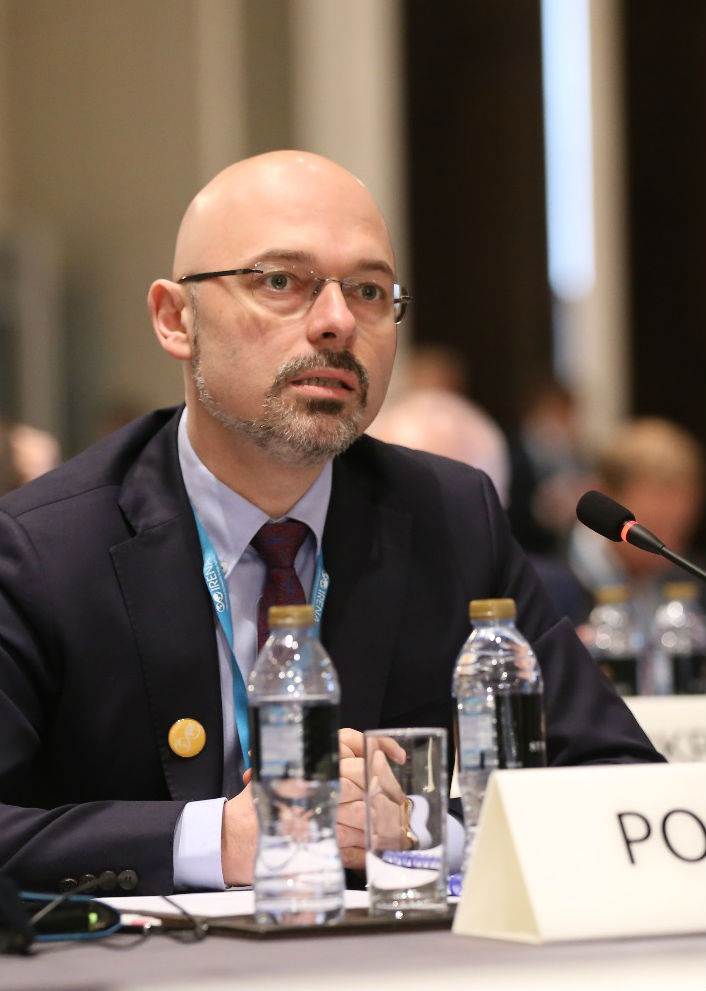
“Local mobilisation of renewables is important to get not just electricity, but education and health services too.” — Michal Kurtyka, Undersecretary of State of Poland’s Ministry of Energy
Access to affordable and long-term financing for end-users and entrepreneurs was highlighted as key for catalyzing growth in the off-grid renewable sector. In particular, the importance of unlocking asset-based financing for rural consumers and levering on microcredit delivery was emphasised to be important. The importance of innovative financing tools, including provision of guarantees for de-risking private sector investments and local currency loans, was also highlighted.
The development of technical capacity unanimously came across as key for ensuring that technology solutions are adapted to local conditions. These capacities need to be developed across the value chain, including among regulators, financing institutions and communities.
Building partnerships towards a common objective
The Ministerial Roundtable concluded with an emphasis on the importance of partnerships and collaboration. In achieving the objective of universal access to electricity, partnerships and international cooperation, as well as peer-to-peer learning will be key to maximise efficiency and impact of efforts and resources.
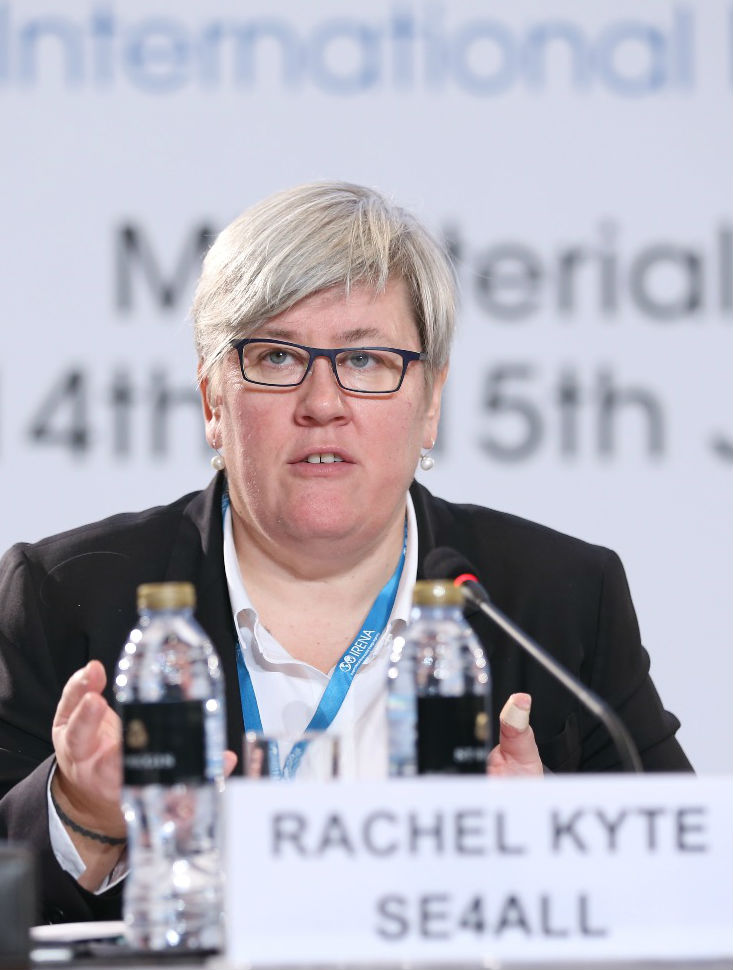
“I'm heartened by how the conversation here has changed. This is not development as usual. This is different.” — Rachel Kyte, Chief Executive Officer of Sustainable Energy for All
The outcomes of the Ministerial Roundtable were reported back to the Assembly, and will further feed into IRENA’s future work on policy and regulatory analysis, entrepreneurship promotion, data and information gathering, tools development and country-level support.
To learn more about off-grid renewables, check out IRENA’s recently released key findings and recommendations from its International Off-grid Renewable Energy Conference.



